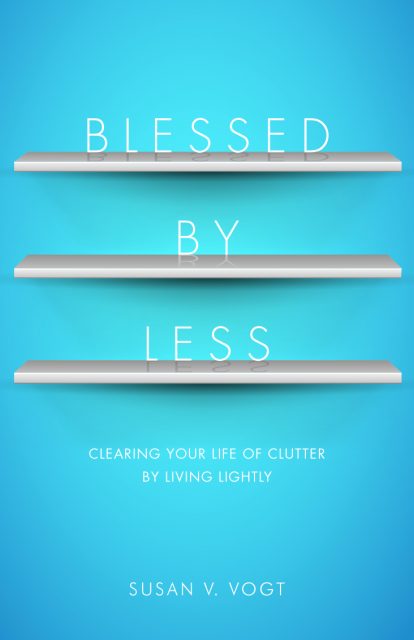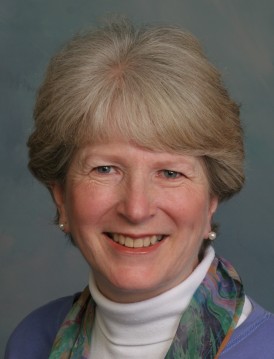Susan Vogt undertook a different kind of Lenten practice several years ago: instead of giving up chocolate or trying to pray more, she decided to give up her stuff. Every day, she would get rid of at least one item in her house.
But she didn’t stop after Lent. As she recounts in her new book Blessed By Less: Clearing Your Life of Clutter by Living Lightly, giving things away as a spiritual practice opened her eyes to the ways her house was crammed to the brim with old toys and clothes for children long since grown (would hypothetical future grandkids really want a thirty-year-old onesie with spit-up stains?) and books she wasn’t likely to read again.
“Our house didn’t look really cluttered because I’m pretty good at organizing and hiding stuff,” Vogt told me. But it was, she says, packed to the rafters with boxes.
After seeing her Victorian home in northern Kentucky I can attest that it is lovely and well-organized, but not obsessively so in any kind of Martha Stewart way. The smells of homemade granola wafted out of the kitchen while we talked. The atmosphere of her home was one of peace and welcome—an environment cultivated, she says, by a conscious decision to simplify.
“I was amazed after that first year that I had given away over 1,200 things,” she says. “Sometimes there were several things in a category in one day. And at the end of that year, I looked around and said, ‘You know, this house is still pretty full!’”
 The overall goal was not decluttering as an end in itself; it was helping other people. “I really wasn’t trying to get rid of clutter,” she explains. “I was trying to just pass on things that I didn’t need anymore to those who needed them more than I did.”
The overall goal was not decluttering as an end in itself; it was helping other people. “I really wasn’t trying to get rid of clutter,” she explains. “I was trying to just pass on things that I didn’t need anymore to those who needed them more than I did.”
Simplifying meant not buying new things to replace the ones she started giving away. And a big part of not buying new things was to not desire them in the first place.
“Desiring less is often contingent on who I’m comparing myself to,” she says. “If I compare myself to those who have more, I feel poor. Making sure that I’m in touch with those who have less helps me desire less, and also to know who to give stuff to.”
In other words, Vogt didn’t give things away in the manner of my family, which is that we donate items to Goodwill every month or so but never actually meet the people who receive them. Or even worse, we just leave our boxes on the front steps on a predetermined morning and the Vietnam Veterans or MS Society collect them for distribution to invisible recipients, all at no inconvenience to us.
For Vogt, giving things away meant getting involved in the lives of those who might need them. She and her husband made a conscious decision to ride the bus instead of driving so that they would be around people who had no choice but to ride the bus. She served regularly at a soup kitchen and tutored at an inner-city school.
It seems obvious, doesn’t it? Getting to know people in need can make it clear who needs what. But how many of us actually make that effort? Vogt isn’t giving away a thing a day anymore, though she still conducts regular purges.
“Through the process, I discovered that ‘blessed by less’ did not apply to only material things, but also intangibles like information, relationships, and memories,” she says.
Everything can be simplified, and while it exacts a cost, it also offers a great reward. “Doing this led me to spiritual awareness,” she explains. “I came to understand more fully that my value and God’s love for me is not dependent on what I own, or how I look, or even what I know and what I can accomplish.”







